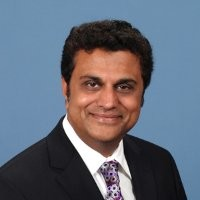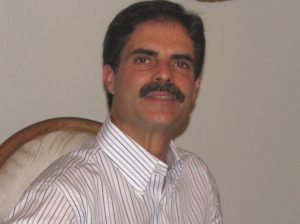The Apple Heart Study: Transforming clinical trial conduct.
Ken Mahaffey, MD
October 8, 2019
6-9PM, Wilson Sonsini Goodrich & Rosati
The Apple Heart Study was a pragmatic, virtual study of over 400,000 participants to evaluate the Apple Watch ability to detect irregular heart rhythms. The innovative design and operational success will be discussed and the results presented.
Dr. Mahaffey is the Vice-Chair of Clinical Research in the Department of Medicine at Stanford University and the Director of the Stanford Center for Clinical Research (SCCR). SCCR is an academic research organization to support researchers to design and conduct clinical research studies and to enroll Stanford patients in clinical trials. SCCR has expertise in mobile and digital technology investigation. Dr. Mahaffey’s own research focuses on the design and conduct of multicenter clinical trials and analyses of important clinical cardiac issues using large patient databases. His research efforts have resulted in the approval of new therapies for the treatment of patients with acute coronary syndromes, diabetes, and atrial fibrillation.
Dr. Mahaffey also studies the methodology of clinical trials including the standardization of the definition of MI used in clinical trials, the adjudication of clinical endpoints, and the evaluation of evidence-based operations. He works with the FDA and chaired the MI and Death Definitions Working Group in the Standardized Data Collection for Cardiovascular Trials Initiative. Dr. Mahaffey is a member of the Stanford University Institutional Review Board.
Event Speaker Bio:
Dr. Mahaffey is the Vice Chair of Clinical Research in the Department of Medicine at Stanford University and the Director of the Stanford Center for Clinical Research (SCCR). SCCR is an academic research organization to support researchers to design and conduct clinical research studies and to enroll Stanford patients in clinical trials. SCCR has expertise in mobile and digital technology investigation. Dr. Mahaffey’s own research focuses on the design and conduct of multicenter clinical trials and analyses of important clinical cardiac issues using large patient databases. His research efforts have resulted in the approval of new therapies for the treatment of patients with acute coronary syndromes, diabetes, and atrial fibrillation. Dr. Mahaffey also studies the methodology of clinical trials including the standardization of the definition of MI used in clinical trials, the adjudication of clinical endpoints, and the evaluation of evidenced-based operations. He works with the FDA and chaired the MI and Death Definitions Working Group in the Standardized Data Collection for Cardiovascular Trials Initiative. Dr. Mahaffey is a member of the Stanford University Institutional Review Board.


